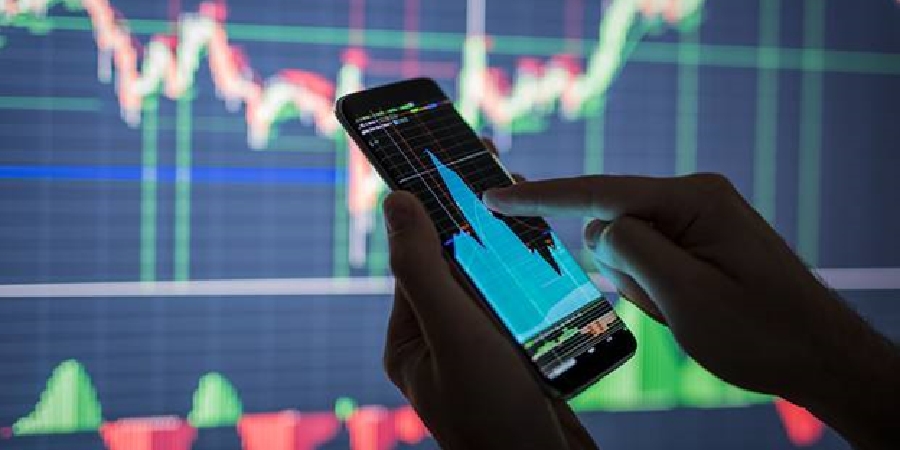
Tom Plumb gravitates toward companies that are swimming with the tide of major secular trends. Today, he sees opportunity in stocks from a number of categories, from financial technology to online travel—and he’s not afraid to own debt from companies.
Opinions expressed are those of the author or Plumb Funds and are subject to change, are not intended to be a forecast of future events, a guarantee of future results, nor investment advice. References to other mutual funds should not be interpreted as an offer of these securities.
By clicking the link you are leaving the Plumb Funds site and entering a third party site. The Plumb Funds are not responsible for any information contained on the third party site.
Performance data quoted represents past performance and does not guarantee future results. The investment return and principal value of an investment will fluctuate so that an investor’s shares, when redeemed, may be worth more or less than their original cost. Current performance of the fund may be lower or higher than the performance quoted. Performance data current to the most recent month end may be obtained by calling 1-866-987-7888 or visiting www.plumbfunds.com.
Click here for holdings and most recent quarter-end performance for the Plumb Balanced Fund.
Fund holdings are subject to change at any time and should not be considered a recommendation to buy or sell any security.
Earnings growth is not a measure of the Fund’s future performance.
Gross expense ratio: 1.50%; Net expense ratio: 1.19%*
*The advisor has contractually agreed to waive fees through 7/31/2019.
Stocks are generally perceived to have more financial risk than bonds in that bond holders have a claim on firm operations or assets that is senior to that of equity holders. In addition, stock prices are generally more volatile than bond prices. Investments in debt securities typically decrease in value when interest rates rise. This risk is usually greater for longer-term debt securities. A stock may trade with more or less liquidity than a bond depending on the number of shares and bonds outstanding, the size of the company, and the demand for the securities. Similarly, the transaction costs involved in trading a stock may be more or less than a particular bond depending on the factors mentioned above and whether the stock or bond trades upon an exchange. Depending on the entity issuing the bond, it may or may or may not afford additional protections to the investor, such as a guarantee of return of principal by a government or bond insurance company. There is typically no guarantee of any kind associated with the purchase of an individual stock. Bonds are often owned by individuals interested in current income while stocks are generally owned by individuals seeking price appreciation with income a secondary concern. The tax treatment of returns of bonds and stocks also differs given differential tax treatment of income versus capital gain.
Plumb Balanced Fund is no load; there are management fees and operating expenses that do apply. Such fees and expenses are described in the Fund’s prospectus.
S&P 500 is an unmanaged index which is widely regarded as the standard for measuring large-cap U.S. stock market performance. One cannot invest in an index.
As of 6/30/2018 Morningstar rated the Funds as follows: Equity Fund 5, 4, and 3 stars for 3, 5 and 10 years among 1265, 1141 and 825 Large Growth Funds; Balanced Fund 5, 5 and 4 stars for 3, 5 and 10 years among 674, 617 and 439 Allocation-50% to 70% Equity Funds based on risk adjusted returns. The Morningstar RatingTM for funds, or “star rating”, is calculated for mutual funds, variable annuity and variable life subaccounts, exchange-traded funds, closed-end funds, and separate accounts) with at least a three-year history. Exchange-traded funds and open-ended mutual funds are considered a single population for comparative purposes. It is calculated based on a Morningstar Risk-Adjusted Return measure that accounts for variation in a managed product’s monthly excess performance, placing more emphasis on downward variations and rewarding consistent performance. The top 10% of products in each product category receive 5 stars, the next 22.5% receive 4 stars, the next 35% receive 3 stars, the next 22.5% receive 2 stars, and the bottom 10% receive 1 star. The Overall Morningstar Rating for a managed product is derived from a weighted average of the performance figures associated with its three, five, and 10-year (if applicable) Morningstar Rating metrics. The weights are: 100% three-year rating for 36-59 months of total returns, 60% five-year rating/40% three-year rating for 60-119 months of total returns, and 50% 10-year rating/30% five-year rating/20% three-year rating for 120 or more months of total returns. While the 10-year overall star rating formula seems to give the most weight to the 10-year period, the most recent three-year period actually has the greatest impact because it is included in all three rating periods.
© 2018 Morningstar, Inc. All rights reserved. The information contained herein: (1) is proprietary to Morningstar and/or its content providers; (2) may not be copied or distributed; and (3) is not warranted to be accurate, complete, or timely. Neither Morningstar nor its content providers are responsible for any damages or losses arising from any use of this information. Past performance is no guarantee of future results.
Spread is the difference between the bid and the ask price of a security or asset.
CATEGORIES
SIGN UP FOR THE PLUMB LINE
STAY UP TO DATE ON OUR CURRENT INSIGHTS AND PORTFOLIOS.
